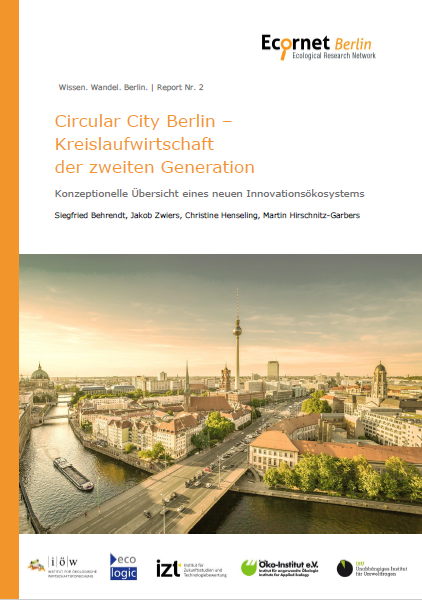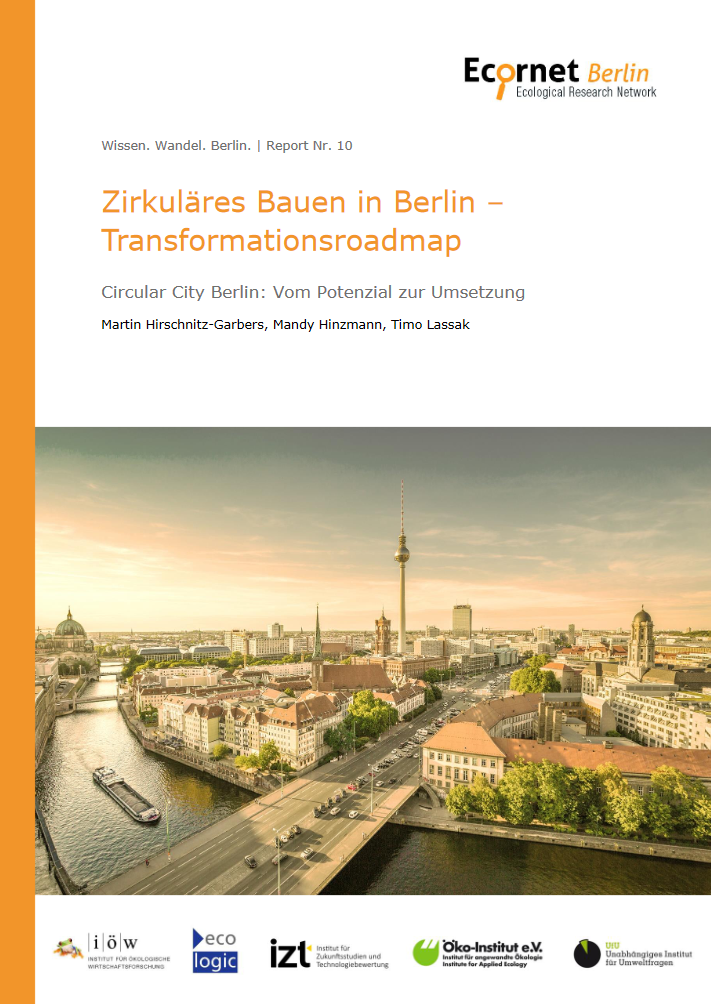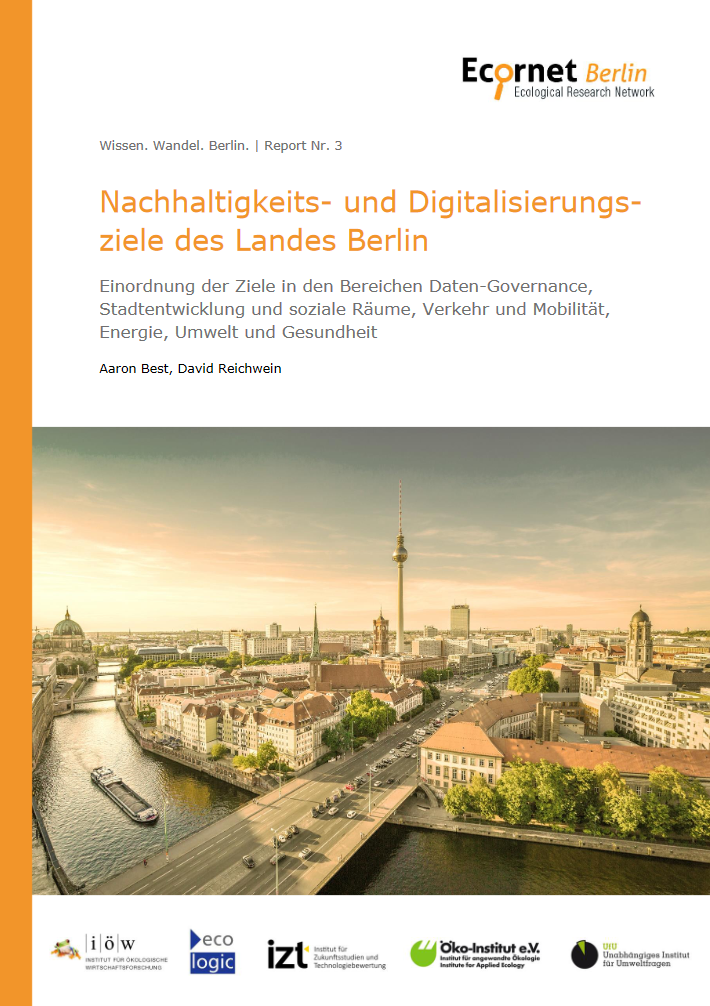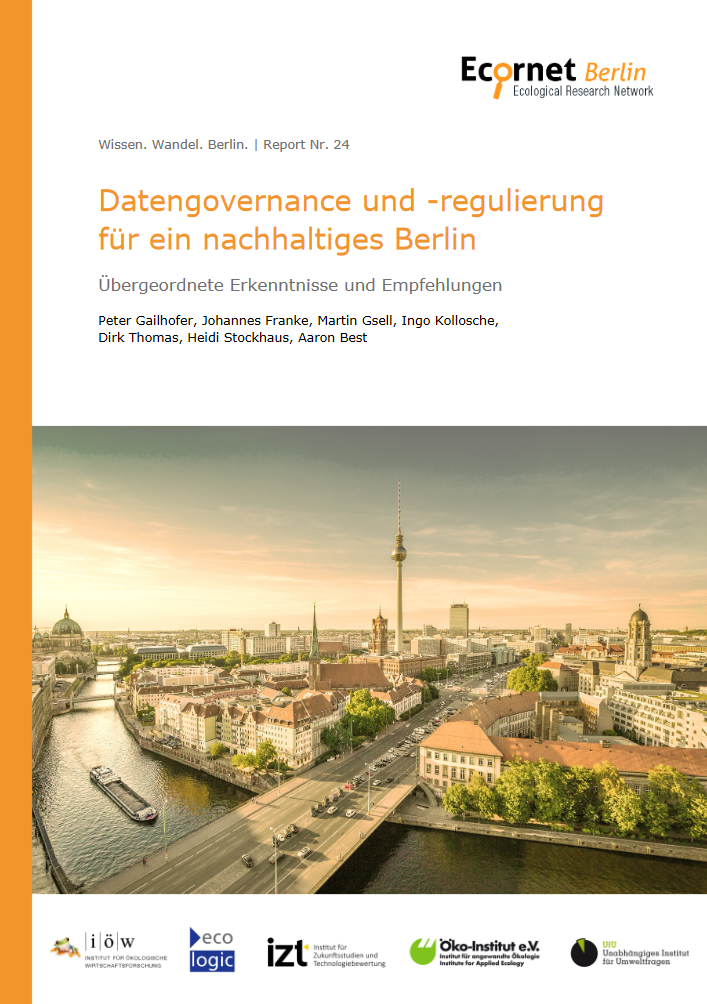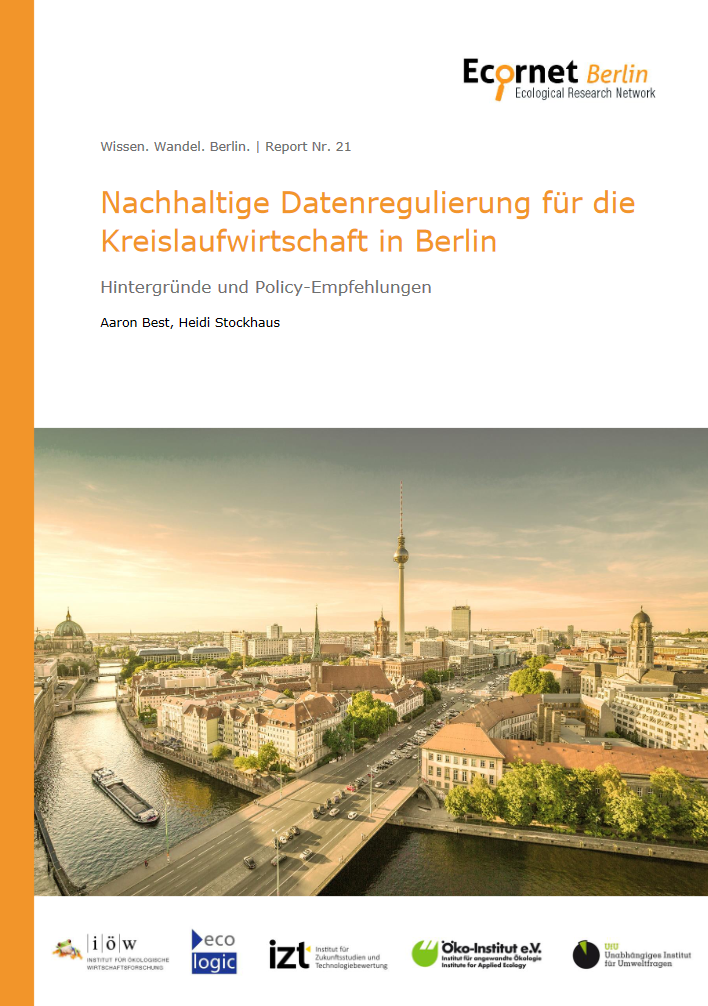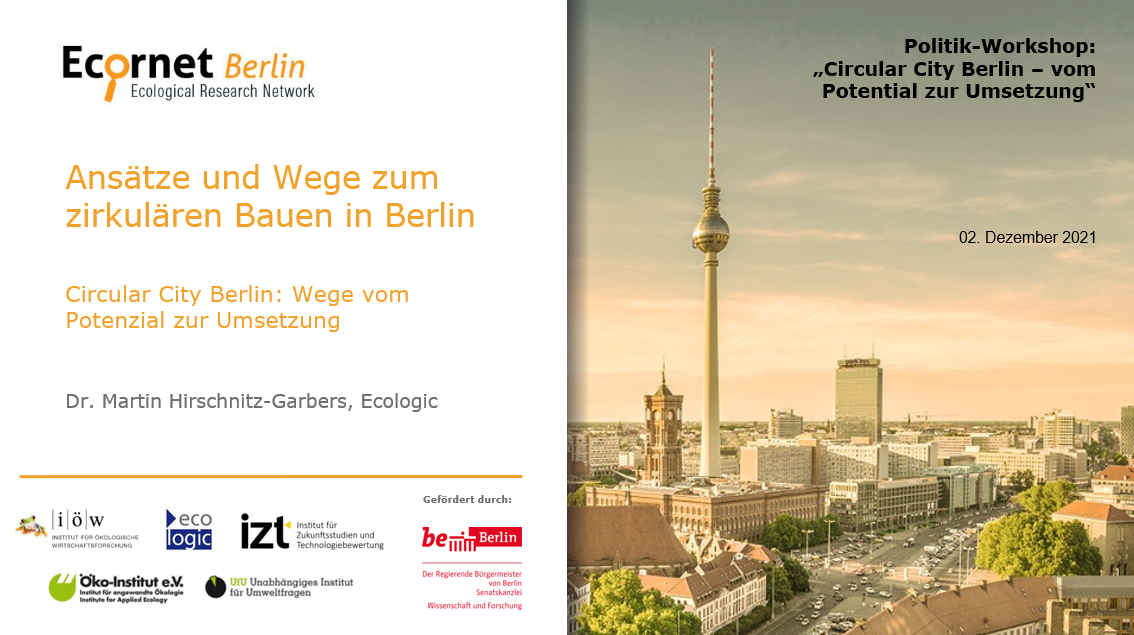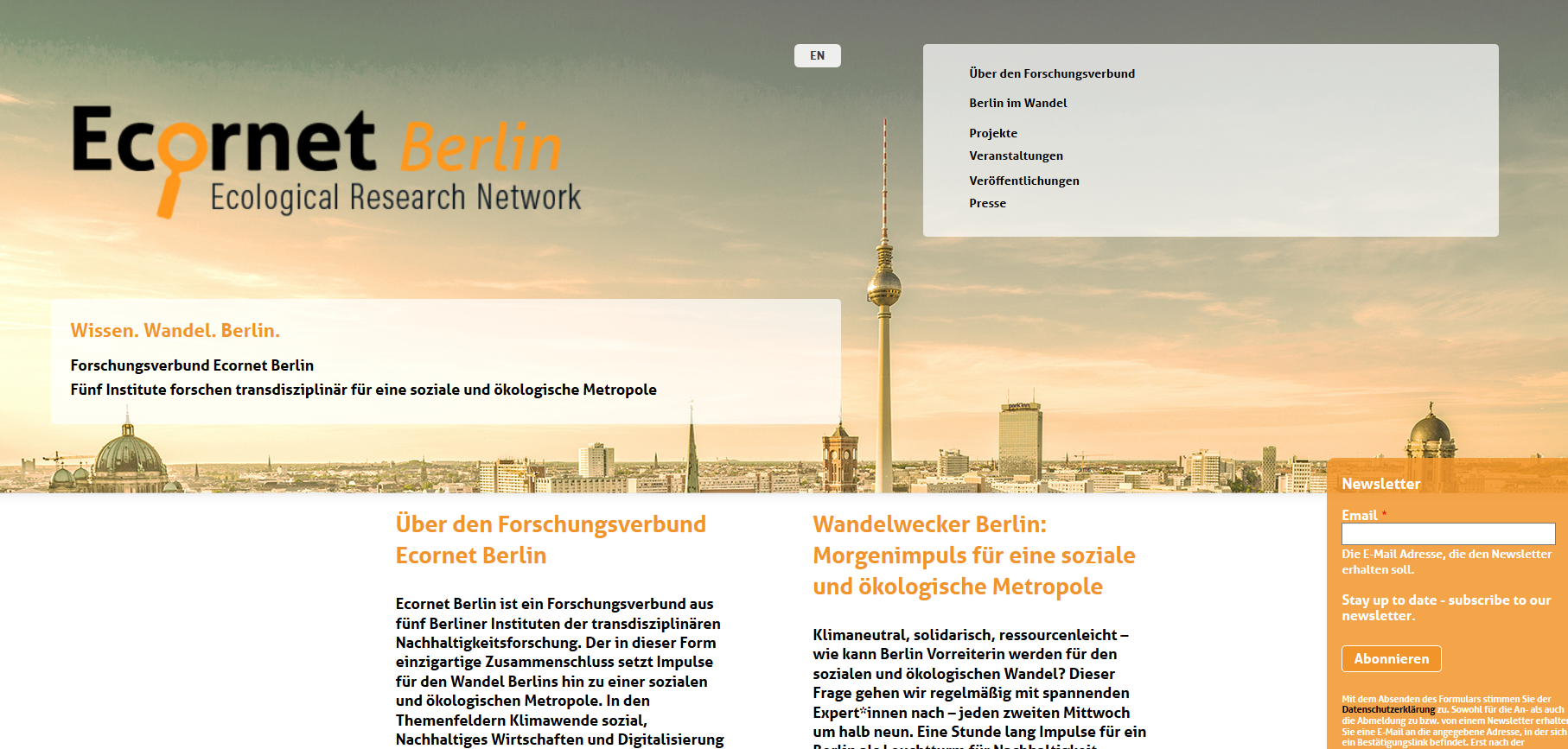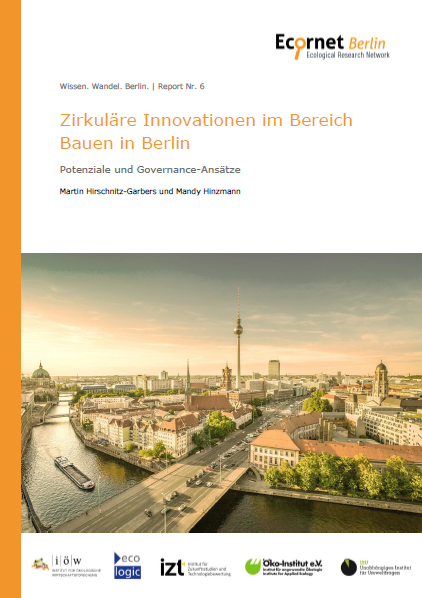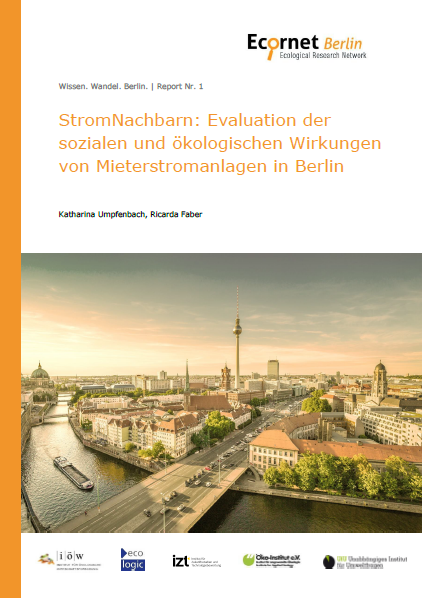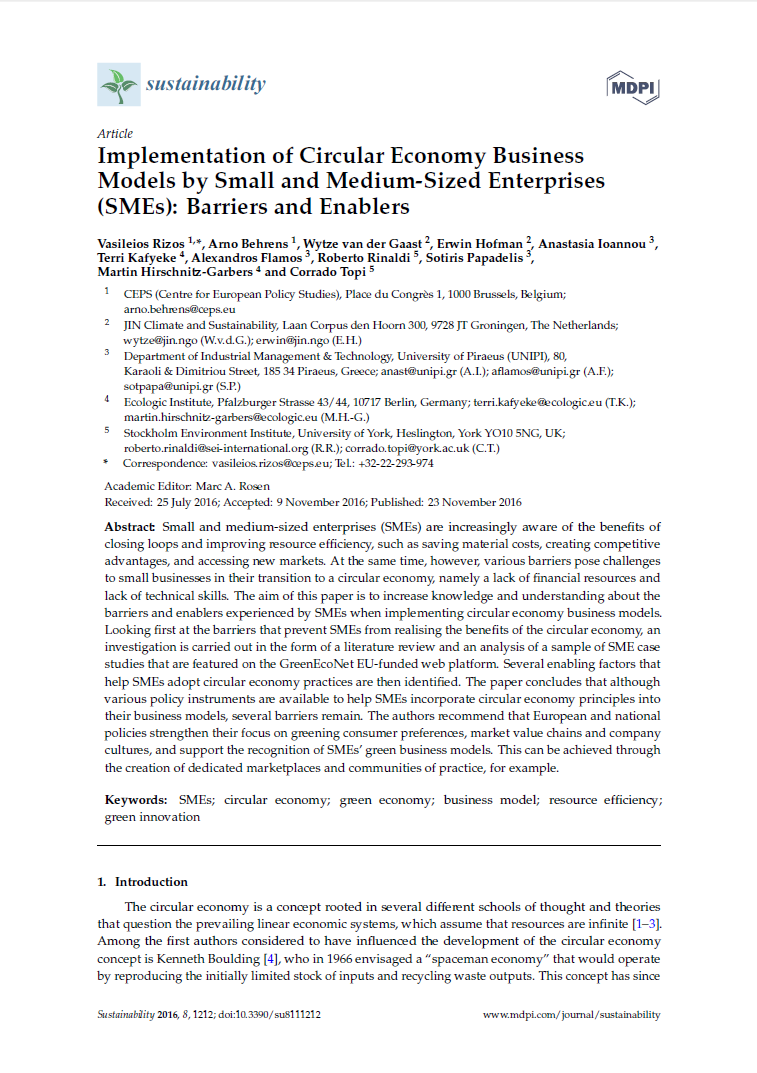Circular City Berlin – Kreislaufwirtschaft der zweiten Generation
Konzeptionelle Übersicht eines neuen Innovationsökosystems
- Publication
- Citation
Behrendt, Siegfried; Zwiers, Jakob; Henseling, Christine; Hirschnitz-Garbers, Martin (2021): Circular City Berlin – Kreislaufwirtschaft der zweiten Generation. Konzeptionelle Übersicht eines neuen Innovationsökosystems, Berlin: Ecornet Berlin.
As part of the CiBER project "Circular City Berlin - pathways from potential to implementation", initiatives and business models are being investigated that can contribute to the development of a next-generation circular economy in Berlin. The special focus is on the areas of construction, electronics and textiles. The next-generation circular economy is about innovations in product design and product use systems. There are four basic practices:
- life cycle design (re-design of products in connection with waste-avoiding services),
- extension of the useful life of products (re-use, repair, re-commerce and refurbishing),
- intensification of use (sharing, borrowing and renting), and
- re-use of materials (upcycling and retro-logistics).
An evaluation of various databases and platforms shows that a diverse innovation landscape and a testbed for a Circular Economy has emerged in Berlin, which focuses on new product utilisation systems. The innovation ecosystem is based on the interaction of a multitude of actors and environmental conditions. The innovation scene consisting of re-use actors, sharing providers, repair cafés, upcycling providers, start-ups, platforms, innovation labs, etc. represents the critical landscape of actors in the ecosystem. The innovation system is shaped by political and legal framework conditions, incentive structures and funding measures.
